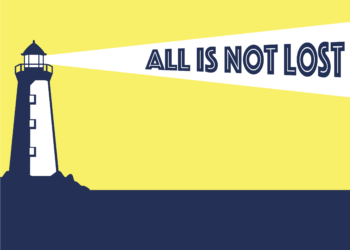
- Image by cdw9 via Flickr
A recent post from Outsell, a consultancy specializing in publishers and information providers, cites a post from March in which Colin Crawford talks about the need for a “Media Publishing Association,” a new type of organization that moves beyond print boundaries and traditional trade definitions to embrace the realities we’re all facing today.
In talking about a current trade organization, the Magazine Publishers of America, Crawford writes:
Print magazines can be a key product – but publishers are not in the print business – they are in the customer information business – it takes bold vision to move the conversation up a notch . . . [as long as the MPA is] seen as a defensive trade organization, protecting print, then its long-term relevance will be questioned and it will continue to lose membership support.
The Outsell entry focuses even further, and talks about the alphabet soup of trade organizations publishers have in front of them:
To name a few: ABM, SIIA, OPA, MPA, NAA, SIPA, STM, PA, AOP, PPA, DPA, IPA, FIPP, EADP, AAP, NPA, WAN, SISO, BMA, IAB . Each has their own constituency who are increasingly involved in others “containers.”
The notion of “containers” is an interesting one. Anthea Stratigos, the author of the Outsell blog entry, writes that:
[associations] are increasingly stepping on each other as the world of content and publishers increasingly play across all these media/containers and as publishers’ budgets and ability to invest in all these associations gets crimped.
Now, full disclosure — this is the official blog of the Society for Scholarly Publishing, one of the associations in scholarly publishing. Others include PSP, ALPSP, STM, and CSE, just to name a few. Of these, I think the SSP is among the best at creating interesting meetings and useful resources and events.
Each of these organizations is struggling to balance interests within the scholarly communication realm, from librarians and information consumers to publishers and information producers. And there is a large amount of crossover between the organizations, year in and year out — speakers appear in multiple venues, topics are covered repeatedly over a 1-3 year period, and sometimes it seems like a travel club going from meeting to meeting.
Is it time for consolidation in the association world, with a focus not on traditional constituencies and concerns but on the markets? Should we embrace all media and seek to value it, rather than defending the media of the past? Should we do this together?
Is there a better way forward?
Discussion
1 Thought on "Do Publishing Associations Match Publishing Realities?"
Is there a better way forward?
I think so. As far as I can see, large commercial publishers are operating with an old-head, top-down mentality, and this management style (while profitable in the meantime) handcuffs an organization and holds it back from pursuing innovation and evolution and applying new ideas to their journals/books. What will happen, if this continues, is a migration of valuable human assets from this industry to others, and technologies and business models/practices, which can/could be used to support academic publishing, will continue to evolve at a rate exponentially beyond what the industry is able to adapt, bringing it — as we’re used to “it” being defined — one degree at a time closer to obsolescence.
The problem with an uber-, consolidated society in the near future is the increased bureaucracy and decreased autonomy, which would result — the same problems with which the large, market-steering publishers are suffering. The posts on internal management culture (“Management Trap”) best speak to the solution; something has to change within the industry, and an external change in Society Organization will only result in a gross-perpetuation of the same old message of “change” and reciprocation-driven-evolution with no intention to actually affect any new ideas.
![Reblog this post [with Zemanta]](http://img.zemanta.com/reblog_e.png?x-id=ec082579-3eb6-42b4-b2a0-dd484e24e448)


